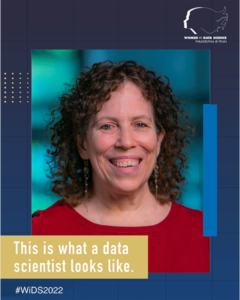
When computing technology first emerged at the end of World War II, women were a major part of the budding workforce that was trained to make the most of these new machines. The pioneers who programmed the Electronic Numerical Integrator and Computer (ENIAC) — the world’s first all-electronic, programmable computer, unveiled at the University of Pennsylvania in February 1946 – were all women. As women increasingly embarked on professional careers in the following decades, the percentage of women in computer science steadily rose as the technology evolved and proliferated.
But sometime during the mid-80s, when personal computers were first being mass marketed — mainly to men— the field began to see a major shift. The rate began to flatten, and eventually plummeted. In 2015, women received a mere 18 percent of the bachelor’s degrees in computer science.
Tal Rabin, Rachleff Family Professor in Computer and Information Science, believes that being surrounded and inspired by women as a graduate student in the late 80s ensured her success in the field. Rabin, named one of Forbes’ Top 50 Women in Tech in 2018, counts herself more fortunate in that respect. When she was completing her graduate studies, the representation of women in those fields was just entering its decades-long decline, but the resources she needed were still plentiful for her.
“When I was doing my Ph.D., for some odd reason, we were a bunch of women there. I had a peer system that supported me, and we supported one another,” says Rabin. “You need to find a support group of peers that are going to help you through, people that you can connect to and support.”
This experience is one of the reasons why Rabin is slated to speak at this year’s Women in Data Science (WiDS) @ Penn Conference that takes place from February 9-10. The independent event, organized by the Wharton School as part of the annual WiDS Worldwide Conference, draws from both academia and industry to provide programming that aims to inspire, educate and support women in the field.
“Diversity and teamwork are essential, particularly when data is used to tackle big challenges like healthcare or food or energy supplies,” states an educational outreach video on the WiDS Worldwide Conference site.
Rabin’s research in cryptography, which falls under the umbrella fields of data and computer science, focuses on a challenge that underlies many of these applications: keeping user data safe as it is analyzed.
She published her most critical work, titled “Verifiable secret-sharing and multiparty protocols with honest majority” (STOC 1989) as a master’s student at Hebrew University. For data scientists, cryptography involves mathematical concepts that can hide — or reveal — specific pieces of information within a complex system. Rabin’s foundational paper provided proofs for systems containing data from multiple individuals, some of whom may be providing faulty information. It proved to not only be fundamental in the field, but also in deciding her life’s direction, and would go on to win the Association for Computing Machinery’s (ACM) STOC Test-of-Time Award 30 years later.
“That paper showed me how much I loved research and how it could be a wonderful thing, and how it’s really suited for my life,” says Rabin.
Beyond her academic achievements, Rabin sees her perspective as a woman and mother as being an important part of her career in data science.
In motherhood, Rabin has found a delicate synthesis of all the things she cares for most. Her daughters, who also both studied computer science and went on to careers at Disney and Google, provide her with a sense of equilibrium and focus, among other things.
“My daughters are the best thing in my life, my career as well,” says Rabin. “They give you a good understanding of balance, of what’s important and what isn’t. When things go wrong and bad and you’re frustrated, you have these little sunshines and it gives proportions.”
Additionally, Rabin cites that having positive women role models and good old-fashioned empathy have helped her navigate her career. Her advice to women just beginning their professional journeys?
“Realize that it’s going to be challenging and it’s challenging for everyone; you are not the only person who’s struggling,” says Rabin. “You just have to stick it out as difficult as it may be, and it is difficult. But I think the rewards are worth it.”
Although her children have found their professional place and footing in computer science now, their studies were often fraught with struggle and uncertainty, according to Rabin. She remembers offering guidance on the openness and flexibility that the field offers, guidance that she readily extends to all up-and-comers as well.
“You want to do things that are in the NGO realm, people need computers there. You want to do PSI implementation work, deep in the little nuts and bolts of things, you can do that. It’s just such a wide spectrum of possibilities,” says Rabin. “You can get a place that interests you maybe for other reasons, not just for the underlying computer science. Endless amounts of opportunities.”
